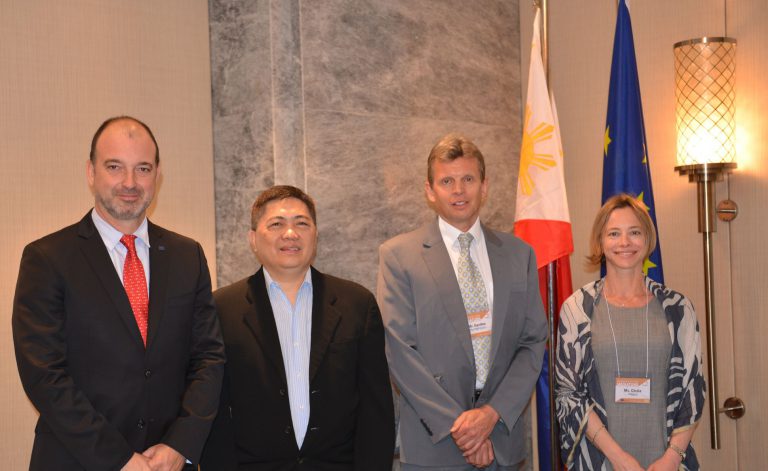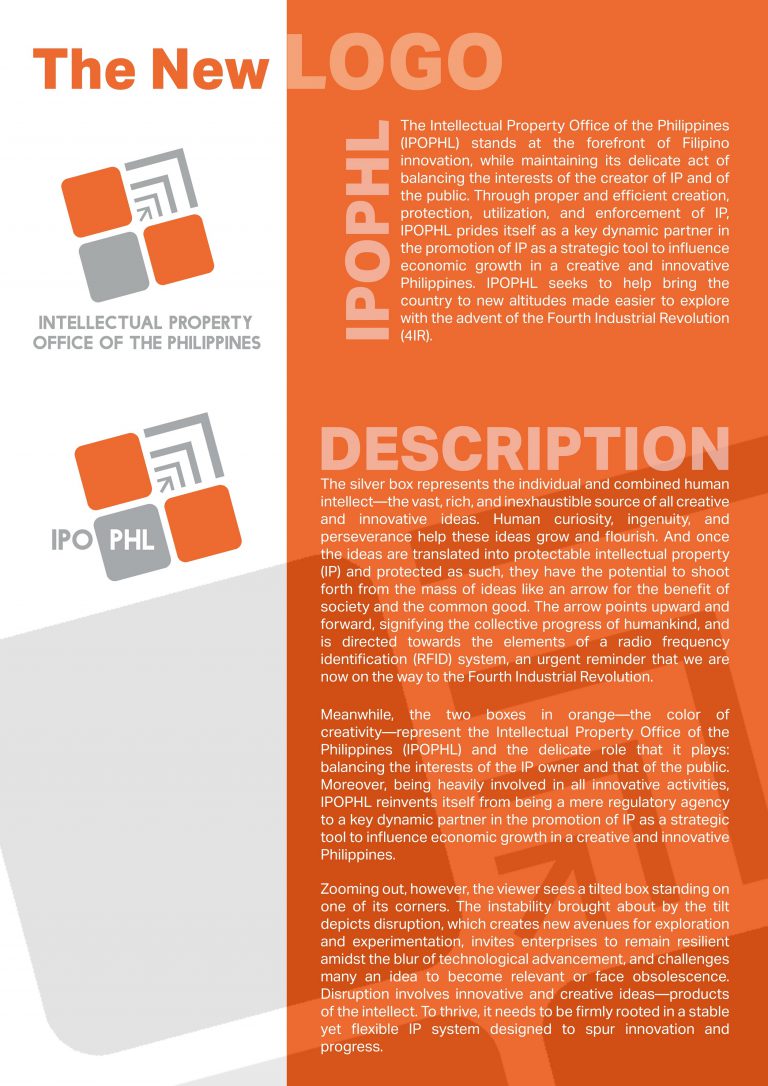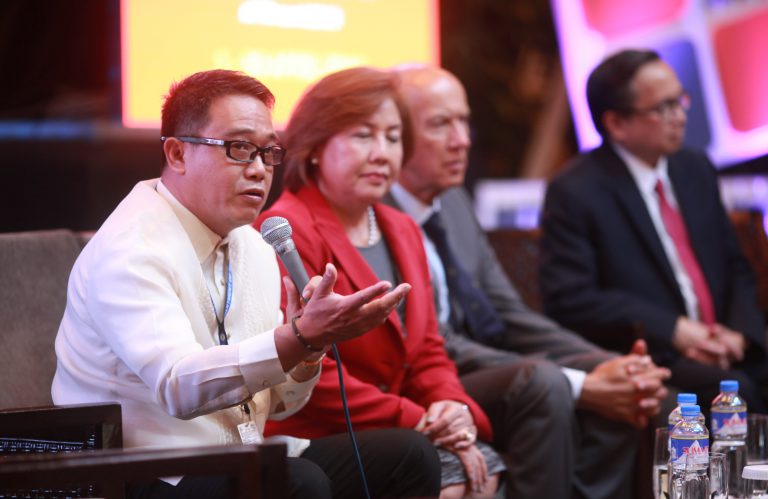WAGI SA PINOY IP FEATURE SERIES

Stanley Ruiz: From the roots of Bago, Negros to championing industrial design worldwide
By Hannah Dione Lucero
Like many young adults starting their academic journey, industrial design (ID) emerged as a practical choice for Industrial Designer and Estudio Ruiz founder Stanley Ruiz. As a student who took on commissions for shirt designs and restaurant murals, Ruiz, then an undergrad, had no idea that his later designs would appear in exhibits across the world.
“Back then, when you talk about ID, most people thought we design factories and plan out industrial production. I barely knew what industrial design was,” Stanley Ruiz said during an interview with the Intellectual Property Office of the Philippines (IPOPHL).
ID would later become a pivotal choice for Ruiz. In partnership with the Department of Trade and Industry DTI’s Design Center of the Philippines, Ruiz currently holds more than 60 registered IDs in IPOPHL. The ingenuity of his work would gather him accolades from the DTI-Center for International Trade Expositions and Missions’ (CITEM) Katha Awards, Maison et Objet’s 2016 Rising Asian Talents winner, and the 2024 Gawad Yamang Isip Award for ID.

The range of his popular designs harmonizes nature, culture, and craftsmanship. Ruiz’s works have been exhibited in design fairs and museums across New York, Bangkok, Paris, Milan, and Bali, championing contemporary Filipino homeware pieces across the globe.
Crafting connections with the Artisans of Bago
A year prior to finishing his degree at the University of the Philippines (UP) Diliman, Ruiz took an internship role at a local fair trade organization that provides marketing and design services to cottage-industry producers.
In a month-long immersion in Bago, Negros Occidental with the Association of Negros Producers (ANP), Ruiz experienced ID first-hand with the local artisans. Observing the community’s acumen in using raw natural materials such as bamboo, coconut shells and nito vines, Ruiz found that natural Philippine resources would become a strong element in his designs.

“This is where I first experienced ID first-hand. I worked with a family of artisans daily for about a month. I also tried to incorporate other materials during my work there like found stones and vines. We came up with a bunch of vessels, some lighting, trays and other tabletop items,” Ruiz said, attributing the sensibilities of his popular works to the experience.
While Ruiz discovered a new perspective in design processes, he also alluded to how the community’s culture complemented his vision for future works.
“I learned a lot from that experience, and also observed how people behaved and worked —their quirks. It was interesting. Design is also part anthropology, that’s why immersion is essential. In school, they would equip us with basic knowledge to build a foundation for us to learn how to approach things. It was then up to us to expand that knowledge to actual settings and scenarios. The internship really complemented the academic experience,” Ruiz said.

The designs would later be exhibited at the National Trade Fair, which marked the start of his journey to tell stories with homeware designs.
Branching out to broader perspectives
After graduating, Ruiz would later bring his career to Bali, and eventually, New York. During springtime in 2008, Ruiz detailed an experience in a park in Brooklyn where he noticed fallen twigs on the ground which sparked an idea for a design. Ruiz then ties the designs back to his experience in Negros Occidental where natural resources were crucial to the local livelihood.
“I thought maybe I can make something out of these. So I picked up a bunch of twigs and took them back to my apartment. The next day I brought some bags and picked more and eventually started making products out of them. I launched a collection consisting of a bowl, a clock and other items” Ruiz recounted, describing the product line as a counterpoint to the prevailing designs during the economic recession at the time.

With his affinity for harnessing inspiration from natural materials, Ruiz would call the collection the New Organic line which he attributes to the works that established him in the crafts and homeware design industry.
“It gained traction. People were asking about details of the products – the concept behind it. They were taking photos, the buyers got curious. The collection was shown at the Designboom Mart within New York’s International Contemporary Furniture Fair which was kind of a big deal for us emerging designers,” Ruiz added.
Protecting his works with IPOPHL
During Ruiz’s stint in Bali, he observed the rapid and rampant practice of infringing designs in the marketplace. “As soon as we release new products, we understand that at some point, similar copied designs will start circulating,” Ruiz said, describing how ID culture follows a swift commercial lifecycle due to IP violations.
This IP climate in major design environments is where Ruiz recognized the importance of IP protection as a competitive advantage. With the help of the Design Center of the Philippines as co-filer, Ruiz has been registering his works in IPOPHL to establish the authenticity of his designs, as well as to preserve his underlying innovative approach to Filipino aesthetics in this competitive design landscape.
Currently, the design industry has reported a P1.2 trillion in gross value added (GVA) and accounted for 705,000 jobs in 2020, according to a report from the Design Center of the Philippines in 2023.1
On IPOPHL’s part, ID protection has been made more accessible to MSME designers and producers through IPOPHL’s Juana Design protection and the Youth IP Incentive (YIPI) programs that reduce filing fees for priority sectors. Meanwhile, IPOPHL is looking forward to launching a green technologies program that will support the IP filers of sustainable IDs, patents and utility models.
In terms of registrations, 2023 ID applications have increased by 19.9%, with resident filings making up for 56.1%. With the consistent appreciation for ID registration, IPOPHL continues to enable homegrown designers to protect their rights that can strengthen Filipino works in the homeware design landscape.
Today, Ruiz continues his consultancy services with the Design Center of the Philippines and Estudio Ruiz to educate more designers and MSMEs in producing quality Filipino products that can keep up with the growing demand for innovative designs.
Describing ID production in the words of UP College of Fine Arts Dean Leonardo “Doi” C. Rosete as “the hands replacing the machine,” Ruiz believes that more awareness for IP protection for designs would further echo the Filipino ingenuity through innovation on a larger scale.
“Outside of the usual protection against copying or unauthorized reproduction, I think one of the side effects is that it will drive innovation in small businesses. In the case of crafts and homegoods, perhaps artisans and producers will explore and experiment with materials more, manipulate them in new ways? Build upon old techniques, combine them with new technologies? Why? Because they will realize that it makes more sense to protect novel designs than generic ones,” Ruiz said.
The article is published in appreciation of Stanley Ruiz as 2024 Gawad Yamang Isip Awardee for Industrial Design.







